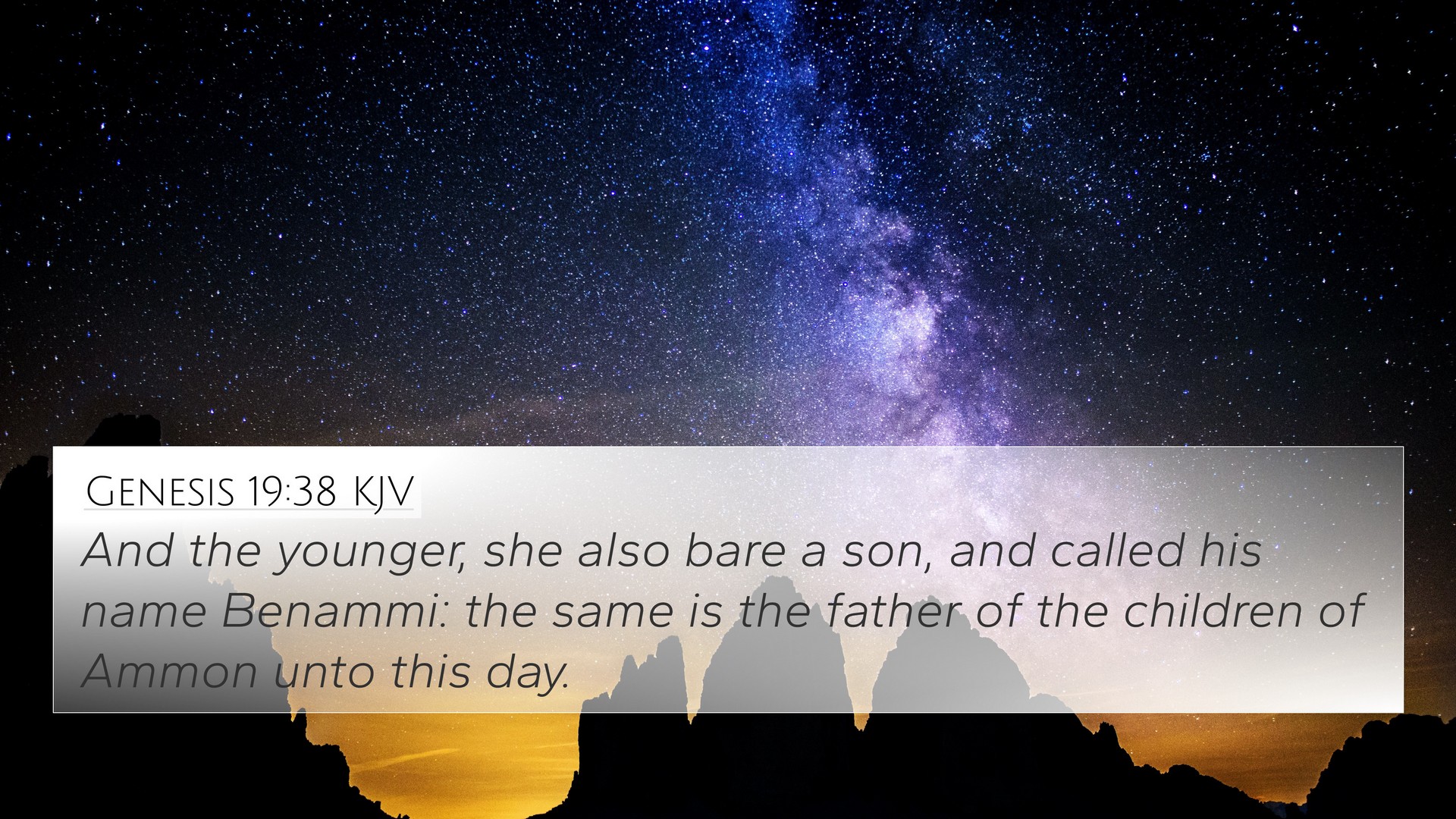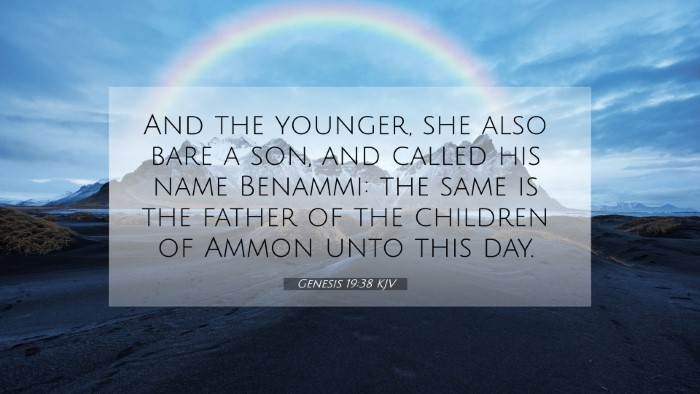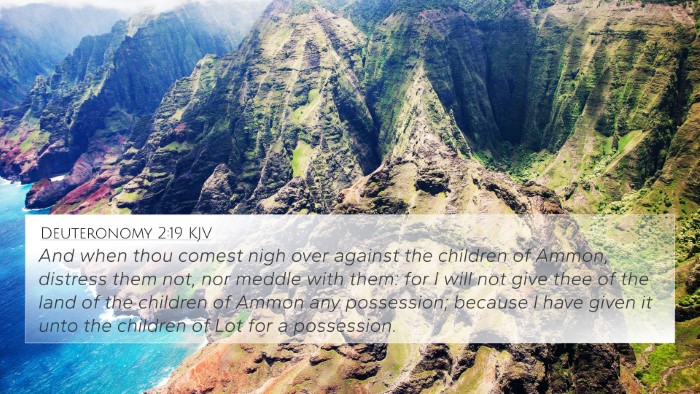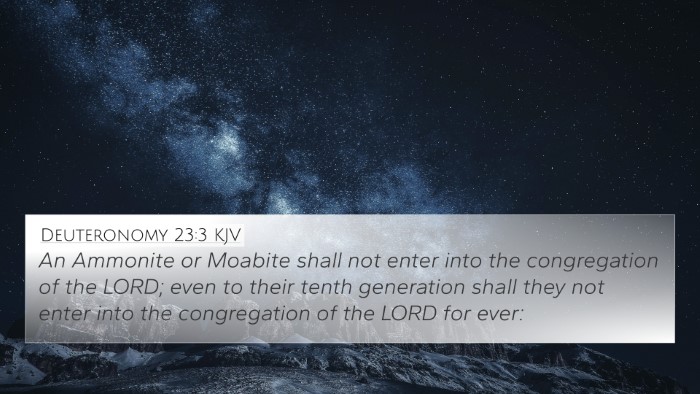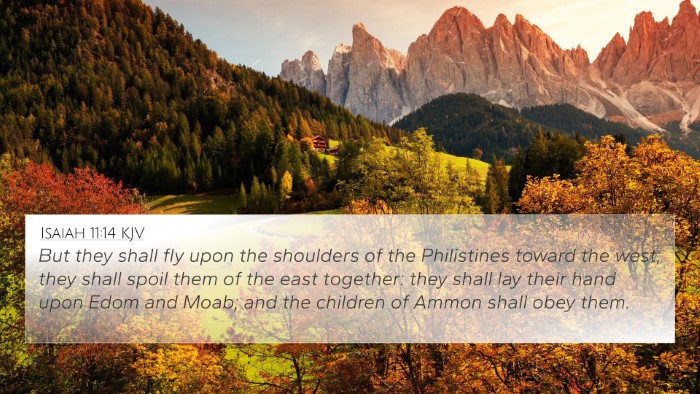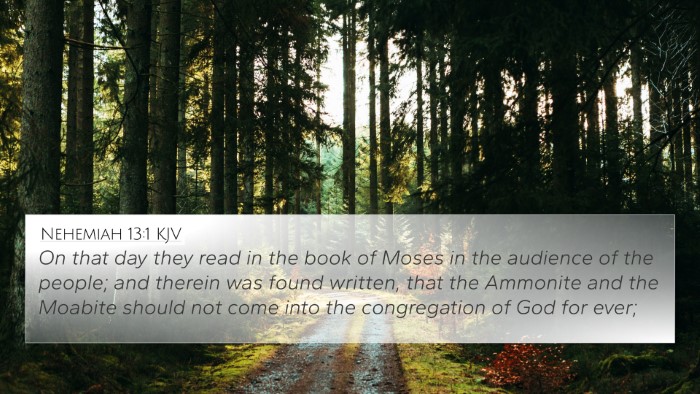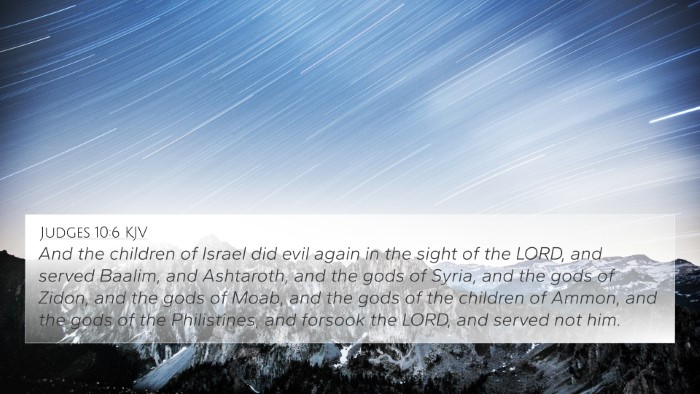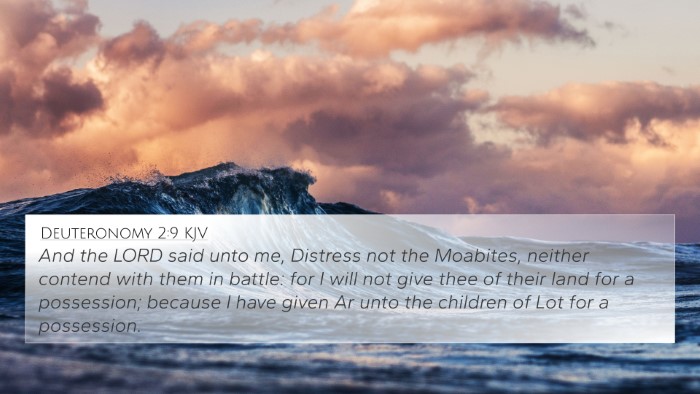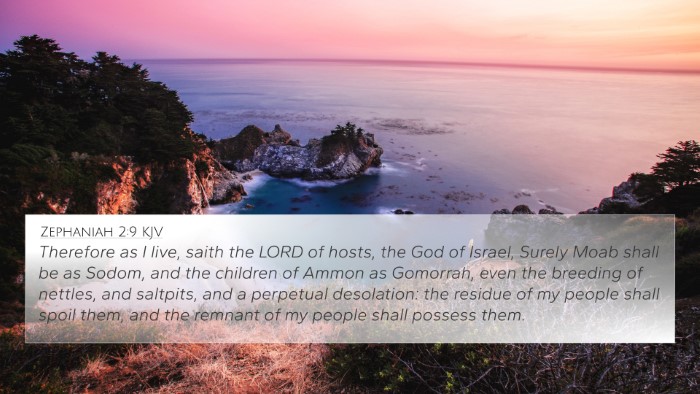Understanding Genesis 19:38
Genesis 19:38 states: "And the younger daughter bore a son, and called his name Ben-ammi: the same is the father of the children of Ammon unto this day." This verse concludes the narrative of Lot's daughters, who, fearing the end of their family line, resort to incestuous actions to bear children. Below, we explore the implications, context, and cross-references related to this verse, drawing insights from public domain commentaries.
Commentary Insights
Matthew Henry's Commentary
Matthew Henry provides a moral lesson on the depravity that can lead individuals to sin out of desperation. He reflects on how Lot's daughters, having been influenced by the destruction of Sodom and Gomorrah, lost faith in God's ability to provide for their future. Their actions, while tragic, reveal the consequences of living in a wicked environment, which desensitizes moral judgment.
Albert Barnes' Commentary
Albert Barnes emphasizes the significance of the child's name, Ben-ammi, which means "son of my people," reflecting the daughters' desire to maintain a connection to their family. Barnes contextualizes this by illustrating how the Ammonites, descendants of Ben-ammi, later played a role in the history of Israel, often opposing the Israelites. This highlights the socio-political ramifications stemming from the choices made in this passage.
Adam Clarke's Commentary
Adam Clarke points out the stark contrast between Lot's daughters and their uncle Abraham, who remained steadfast in faith. Clarke suggests that the daughters' actions stemmed from a lack of faith in God's covenant promises. He also notes that the narrative foreshadows future hostilities between the Israelites and the Ammonites, indicative of ongoing consequences of moral failings.
Thematic Connections
Genesis 19:38 not only chronicles a historical event but also serves as a platform for discussing broader themes in the Bible, particularly regarding faith, morality, and the ramifications of one’s actions.
Key Themes:
- Moral Degradation: The incident exemplifies how living in depraved surroundings affects personal ethics.
- Legacy and Identity: The act of naming the child reflects the intrinsic need to maintain familial ties.
- Faith and Desperation: The daughters’ actions can be seen as a lack of complete trust in God's power and promise.
- Historical Consequences: The descendants of Lot's daughters became significant players in the narrative of Israel’s history.
Bible Cross-References
Genesis 19:38 can be cross-referenced with several other Bible verses that elucidate its themes and provide deeper understanding:
- Genesis 19:30-36: Details the events leading to the birth of Ben-ammi and the rationale behind the daughters' actions.
- Deuteronomy 2:19: Indicates the relationship between the Israelites and the Ammonites.
- Genesis 17:15-16: Discusses God’s covenant with Abraham regarding descendants, contrasting with Lot's daughters' lack of faith.
- Galatians 4:24-26: The allegorical interpretation of two covenants, reflecting on freedom versus bondage, akin to the choices of the daughters.
- Romans 1:18-32: A cultural reflection on humanity’s moral decline, echoing the circumstances surrounding Lot's family.
- 2 Peter 2:6-8: Offers insights into the moral climate of the cities destroyed and Lot's righteous character amidst evil.
- Proverbs 3:5-6: Encouragement to trust in the Lord for guidance, contrasting the actions of Lot's daughters.
Conclusion
Genesis 19:38 is a poignant reminder of the complexities of human choices and the resulting consequences. It highlights the importance of faith and trust in God, providing a parallel to both personal and collective histories present in Scripture.
